What is M.E?
Symptom Management
Summary
M.E is a complex condition that has dozens of symptoms and while we are unable to cover every symptom that you may experience on a daily basis, we hope that the information above is off some benefit to you. Frustrating as it may be, sometimes there is no perfect combination of drugs and treatments to make your symptoms disappear entirely, the most you may be able to hope for is a reduction in the discomfort you experience.
While you should always seek medical advice from your doctor when necessary, oftentimes a trip to your local pharmacy can help reduce some of your symptoms.
Pharmacists are able to provide you with over the counter solutions as well as provide other support and advice (& you don’t even have to make an appointment) that can be as useful as a trip to the doctors. Community nurses and occupational therapists can provide valuable advice as well as can Dietitians, Massage Therapists and other alternative therapies can be off help as well.
M.E Support Northern Ireland makes no recommendations on any medical treatments and only wish to inform you of some of the measures that have helped others.
WHO SHOULD MANAGE PEOPLE WITH M.E?
In Northern Ireland there is no specialist service for people with M.E; as a result, most cases of M.E are managed by GP’s, with support from a multidisciplinary team where and when necessary. This team may consist of specialist consultants, dietitians, occupational therapists, psychologists and others.
This results in a range of outcomes for patients depending on the level of training and knowledge their particular GP has.
This has led many people with M.E to seek medical advice and treatments elsewhere.
The information on this page should not be viewed as an alternative to professional medical advice. Rather, we aim to provide both patients and doctors information on how others with M.E have managed their symptoms.
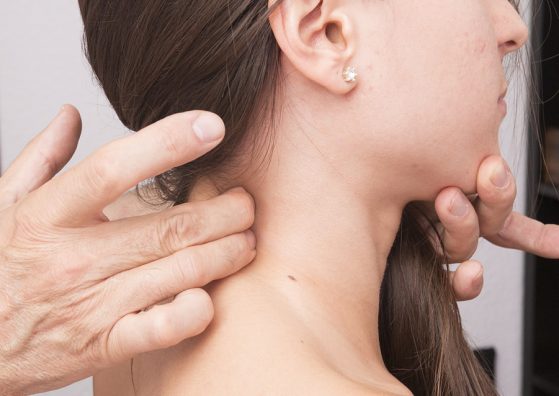
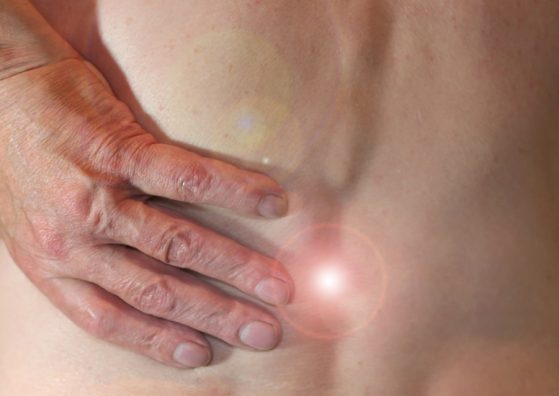
WHO SHOULD MANAGE PEOPLE WITH M.E?
It is important that any new symptoms you display are not automatically assumed to be caused by your M.E and other causes should be explored where you and your doctor deem appropriate.
As people with M.E can be sensitive to side effects of certain drugs, it is important that you and your doctor consider lower doses of medications and other methods to alleviate symptoms beyond pharmacological.
Also see our page on “Holistic Approaches” for further information.
M.E Support Northern Ireland has been lobbying for proper health care provisions for people with M.E. since its formation.
Symptoms
Fatigue
One of the key diagnostic features of M.E is Post-Exertional Fatigue & Malaise
This refers to a worsening of symptoms after activity. “Such Activity, physical or mental, has a characteristically delayed impact, which may be felt later the same day, the next day or even later. This is followed by a period of relative recovery which may last for days or even weeks” (Shepherd, P.48).
Even light activity can cause severe worsening of symptoms for long periods of time.
Health professionals should consider the possibility of M.E if the fatigue is:
![]() new or had a specific onset (that is, it is not lifelong)
new or had a specific onset (that is, it is not lifelong)![]() persistent and/or recurrent
persistent and/or recurrent![]() unexplained by other conditions
unexplained by other conditions![]() has resulted in a substantial reduction in activity level
has resulted in a substantial reduction in activity level![]() characterised by post-exertional malaise and/or fatigue (typically delayed, for example by at least 24 hours, with slow recovery over several days)
characterised by post-exertional malaise and/or fatigue (typically delayed, for example by at least 24 hours, with slow recovery over several days)
On the most extreme end, the fatigue post activity can be so severe, it results in the patient being bedbound for many years.
Anecdotal evidence suggests, that those who push themselves the most at the beginning of their illness tend to be effected the longest.
We have found that the best way to manage Post-exertional fatigue is with Pacing. This means that you don’t “overdo” things and learn your limits.
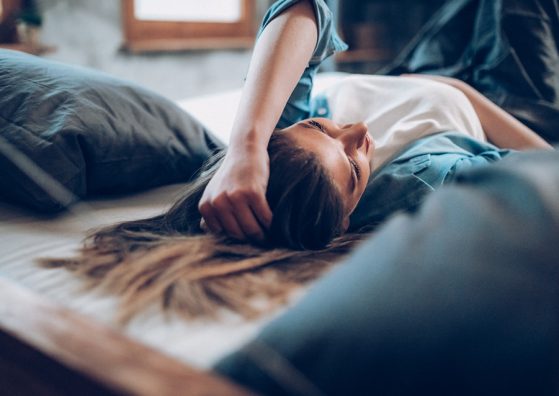
One survey found that “Pacing” was helpful in 82% of cases with just 3% reporting negative effects & another report stating “Pacing was consistently shown to be the most effective, safe, acceptable and preferred form of activity management for people with ME/CFS and should therefore be a key component of any illness management programme.”
![]() https://www.actionforme.org.uk/uploads/pdfs/pacing-for-people-with-me-booklet.pdf
https://www.actionforme.org.uk/uploads/pdfs/pacing-for-people-with-me-booklet.pdf
Sleep Disturbance
Sleep disturbance is a very common symptom that can cause a great deal of distress and finding a method to improve the quality of sleep can make an enormous difference to your quality of life.
In the most severe stages of M.E, sleeping for up to 16 hours a day can be common, perhaps even finding it necessary to nap as well. Those who suffer less severely can still require up to 12 hours of sleep per day to be able to function properly. Most experts on M.E agree that you should sleep when you are tired and fighting against your bodies instinct to sleep may exacerbate your symptoms and extend the length of your illness.
Sleep disturbances can manifest in various ways: Difficulty getting to sleep; if you find yourself “overthinking” when you plan to sleep, it may be best to talk to a professional about what is on your mind, but there can be some benefit to talking to family and friends as well.
Waking up once asleep; can be caused by many things, oftentimes physical symptoms such as pain, night sweats, cramps, restless legs, all of which require different remedies, as a result it may be worth writing down immediately in a notebook the reasons why you wake at night – often we forget the reasons in the morning. This will allow you and your doctor to tackle the causes of your sleep disturbance directly.
Waking too early; such as 4 or 5am is a type of sleep disturbance characteristic of clinical depression and proper medical advice should be sought.
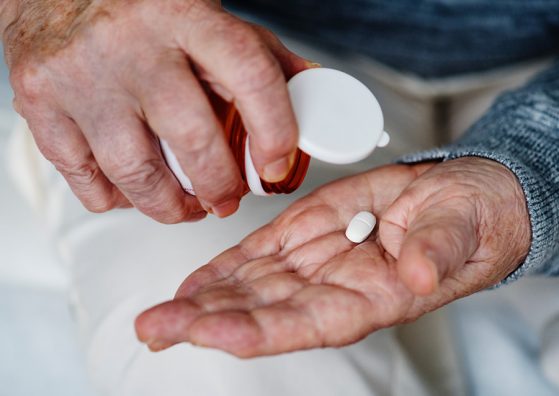
There is a host of medical solutions to sleep disturbances, however many involve various types of “sleeping pills” that should be treated with caution by you and your doctor. However, once again medication may be the least favourable option for those most severely affected.
Your doctor may also consider whether sleep apnoea or narcolepsy may be the causes of your sleep disturbance as they can also be misdiagnosed as M.E (Shepherd, 1999, P.79)

Other Sleep Advice
- We tend to sleep better in a cooler environment, keeping a window open or purchasing a fan with noise reduction built in can be very beneficial.
- Spending time in bed when you are not sleeping can cause confusion to your body and while it may not be possible for the most severely affected people, it would be advisable to have a separate place for resting such as a couch than you do for sleeping.
- Establishing a regular time that you wake every day can also be a valuable way to train your body into a more regular sleeping pattern. Again, this may not be a wise course of action for those most severely affected.
- Having a good mattress can do wonders.
- Avoid caffeine, alcohol & large meals in the evening.
- A glass of warm milk or chamomile tea can be very relaxing before bed
- As can a warm bath
- It is also best to avoid electronic screens before bedtime instead read a book or play a board game
- Start to dim your lights 2 hours before bed
- If you find yourself lying in bed for more than 15-20 minutes you should get out of bed for a short time (perhaps have a cuppa tea). It’s important that you do not begin to stimulate your brain again by watching TV or looking at your phone.
- Do not try and sleep unless your body is telling you, forcing yourself to sleep is setting yourself up for failure
- Relaxation CDs work by using a carefully narrated script, gentle hypnotic music and sound effects to relax you.
- Keeping a sleep dairy may be useful especially for your doctor to review
Muscle Pain
Muscle pain is experienced by the majority of people with M.E and while it can be generalised throughout the body, more commonly it is isolated to the shoulders, necks, chest and thighs. The severity of the pain tends to worsen after exercise, however it is not uncommon for someone with M.E to experience pain continuously. Currently the underlying cause of muscle pain is unknown and it would be wise to be sceptical about the pain being a result of inactivity as there is some evidence suggesting a biochemical explanation. (Wong, 1992, P.102).
Over-the-counter painkillers may bring some relief; however, your GP will have a much wider range of treatment options available.
Your GP may even refer you to a pain clinic if the pain is disabling.
Other approaches that may be beneficial include creams such as Deep Heat and TENS machines that are available through the NHS, as well as privately from shops like Boots. It works by passing a small electrical current through the body to stimulate the release of endorphins which act as a painkiller.
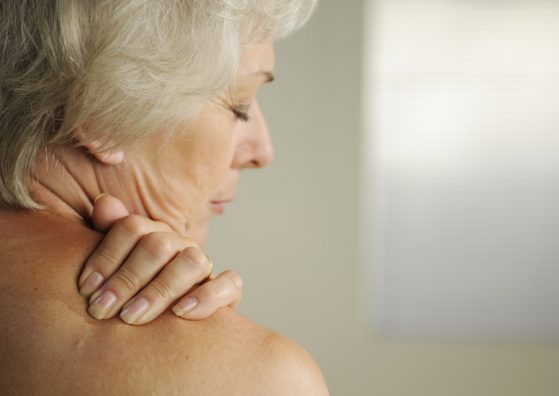
Joint Pain
Pain in the joints causes problems for many people with M.E, though it tends not to be as severe or common as muscle pain, but it can cause problems. Your doctor is unlikely to find any restriction in the range of movement of your joint, nor is it likely that an X-ray will reveal any underlying cause, therefore because of this it is possible that the problem lays in the “supporting structures – muscles and tendons- which surround the joint” (Shepherd, 1999, P.70).
Other explanations include low levels of cortisol and if other symptoms appear your doctor may want to rule out conditions such as Syogren’s syndrome and systemic lupus erythematosus (SLE) both of which can be misdiagnosed as M.E.
Your doctor would likely prescribe you with anti-inflammatory drugs, if pain persists such as aspirin. Self-medicating with paracetamol is not found to be very effective for arthritic pain and “steroids should definitely be avoided in most cases” (Shepherd, 1999, P.71)
A small study suggests that a combination of 80% evening primrose oil and 20% fish oil provides some benefit for joint pains and it may be worth trying, with the supervision of your doctor. (Shepherd, 1999, P.187)
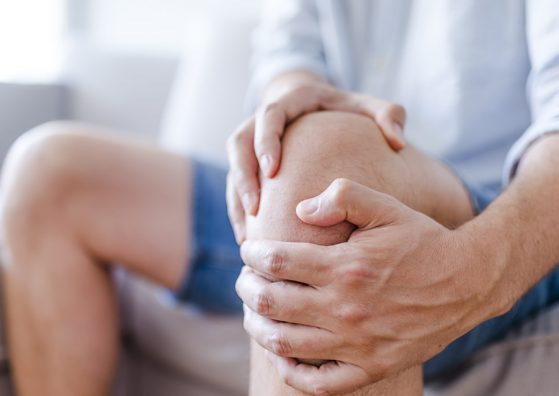
Nerve Pain
Nerve pain is also not uncommon, it often presents as a shooting, stabbing or burning sensation and can cause extreme discomfort.
It is not unusual for nerve pain to worsen at night and frequently people with neuropathic pain are often very sensitive to touch or cold and can experience pain to stimuli that would not normally be painful, such as brushing the skin.
Much like joint or muscle pain some over-the-counter painkillers can be effective e.g. aspirin, however for the best long-term management plan an appointment with your GP is the best way forward.
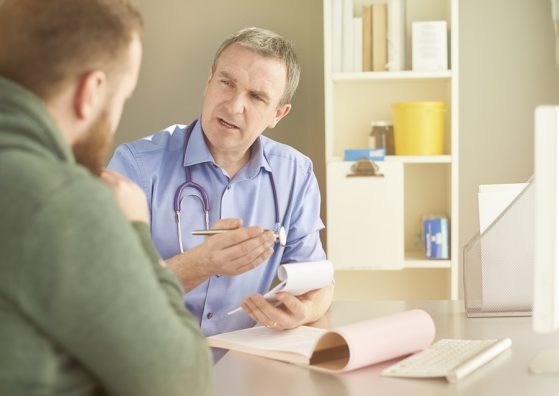
Brain Fatigue
Brain fatigue can be a major source of disability in M.E, oftentimes presenting as poor memory and concentration, affecting speech and language as well as co-ordination, the term “brain fog” is often used to describe these symptoms. Some examples include forgetting the names of people you see regularly, getting confused as to the time of day or forgetting words in the middle of a conversation. This can make life incredibility frustrating on a daily basis and can be made worse by physical and mental exertion, stress, or alcohol.
This can also become dangerous to the individual with M.E and others around them, in severe cases of cognitive problems a solid third of people with M.E forget where they are, who people are and forget the names of loved ones (Pheby, P.53).
If your cognitive issues are severe enough you should not be left alone for long periods of time, and caution should be used when going out alone.
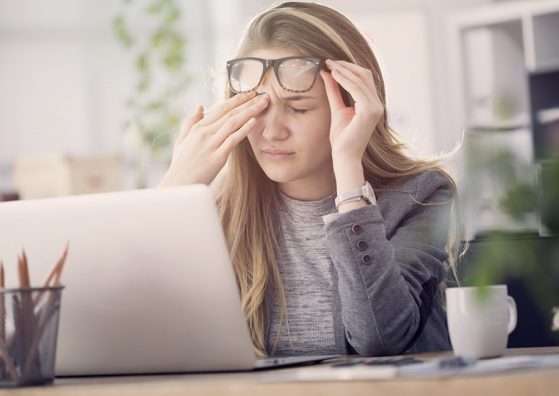

Tips
- Remember that the brain is just like any other muscle and can tire after overuse
- Many people with M.E tend to have periods when they are more alert, plan to carry out any rigorous mental activity at this time
- The brain requires nutrients just like any other muscle, ensure a regular and health diet
- Slowly increasing the length of any mental activities that you carry out to find out what timetable works best for you
- Break up complex tasks into shorter ones
- It’s always useful to keep a notebook on you, to jot down important information such as appointment times or phone calls that have to be made
- Have a calendar on the wall to make sure you don’t miss anything important
- While many people like to read to relax, this may not always be possible, so instead of a large novel read some short stories or for children try some comics instead
- Don’t use up what energy your brain does have on background noise e.g. don’t have the TV on unless you are watching it, don’t scroll on your phone when you’re cooking dinner
Postural Orthostatic Tachycardia Syndrome (POTS)
Postural orthostatic tachycardia syndrome (POTS) is a condition in which a change from lying to standing causes an abnormally large increase in heart rate. This occurs with symptoms that may include light-headedness, trouble thinking, blurry vision, or weakness. “To date, essentially all teenage patients with M.E have POTS” (Spence, P.67) and thus should be considered for everyone who has M.E. due to the high overlap rates. There are a number of medical options that should help treat POTS such as beta-adrenergic blocking agents (beta blockers).
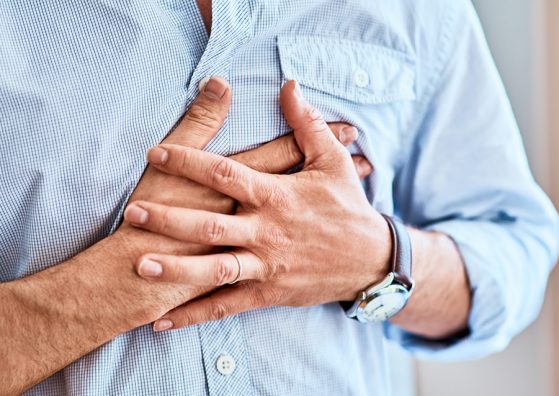

Tips
- Keeping well hydrated (to increase blood volume)
- Adding salt to your diet to assist the body to retain water (though be careful if you have high blood pressure)
- Large meals can worsen symptoms as can alcohol and caffeine
- Your doctor is likely to recommend a small amount of exercise to help your symptom, however this is not advisable for most people with M.E
Irritable Bowel Problems
Irritable bowel problems are a major problem in 52% of people with M.E and a minor problem for a further 32% of people for some gastrointestinal disturbances can be a result of circumstance e.g. poor diet, lack of mobility, dehydration, side-effects of other medication or a combination of all four, so it is worth finding out if any such problems can be improved by small life-style changes. However, for others, associated problems are due to M.E or other underlying medical conditions.
Depending on the particular combination of problems there are a range of medical treatments available. Additionally, there are several methods worth trying at home to alleviate some of the more unpleasant effects, such as dietary modification; this is the most effective treatment for bowel problems with around 70% reporting it to have a positive effect on their symptoms. The downside being that dietary modification can be a long and slow-going process causing many people to give up before the full benefits can be achieved. One method that may be worth trying is excluding different foods from your diet for a period of 2-3 weeks and then slowing reintroducing foods one by one to see if there are any obvious changes. Drugs such as antispasmodic were found to be helpful in 59% of cases and bulk laxatives helpful in around half of cases.
Your doctor or a dietitian will be able to provide you with information tailored to you and you should always seek expert opinion before making any drastic changes to your diet.

It is extremely important for anyone with M.E and IBS-type symptoms to have screening tests for coeliac disease as many of the symptoms overlap.
Note: The title “dietitian” is protected by law. This means you’re not allowed to call yourself a dietitian unless you’re properly qualified and registered with the HCPC. The title of nutritionists isn’t protected by law, meaning that anyone can advertise their services as a nutritionist.
Bladder Dysfunction
Bladder dysfunction can present itself in a number of ways including painful spasms, poor bladder control or the need to frequently pass urine and can be separated into two all-encompassing groups, an overactive bladder and a neuropathic bladder. An overactive bladder can present itself in the frequency that the patient needs to pass urine and can devolve into urge incontinence. Your doctor may consider Oxybutynin or Duloxetine to help with the symptoms. Neuropathic bladder’s main symptom is overflow incontinence; it has been observed in people with M.E, but it is much more commonly found in people with M.S. Your doctor may be able to find solutions that work for you, but many people have to tolerate these issues.
Interstitial Cystitis
Interstitial cystitis, “painful bladder syndrome” or “bladder pain syndrome” seems to be more common among people with M.E, unfortunately it is poorly understood. Though, there are a number of medications being used experimentally to treat it such as Amitriptyline and Gabapentin. Other medications that are available to treat bladder pain include Diclofenac and Pethidine, other medications to lessen more general pain may be off assistance as well
Weight Fluctuations
Weight fluctuations can be a problem for some people with M.E, it is not uncommon for children to lose significant amounts of weight in the early stages of the illness and having difficulty putting it back on regardless of diet. A small number go on to develop a true anorexic state thus a child’s weight should be watched closely by their doctor.
Others have the opposite problem of weight gain; this is unsurprising due to the inactive lifestyle of people with M.E. It may be necessary to cut calorie intake slowly (and with supervision by a professional) to reduce the excess of calories that are no longer being burnt due to the changes in activity level but allowing adequate nutrition. Again, there is the possibility that any problems you may have concerning your weight are not related to M.E, as a result it is important to ensure that your doctor has excluded other possible diagnoses e.g. an over or under active thyroid, Cushing’s syndrome or the side effects of drugs you are taking.
Note: The title “dietitian” is protected by law. This means you’re not allowed to call yourself a dietitian unless you’re properly qualified and registered with the HCPC. The title of nutritionists isn’t protected by law, meaning that anyone can advertise their services as a nutritionist.

Nausea
While stopping short of vomiting, feelings of nausea can be a common problem for people with M.E and your doctor can prescribe various medications such as Metoclopramide or Phenothiazine (Shepherd, 1999, P.65) to help with these symptoms. However, these drugs tend to be on the expensive side and doctors are likely to be hesitant to prescribe them due to some associated side-effects.
Low blood sugar may be a cause of feelings of nausea, if you get the most severe symptoms several hours after eating, your nausea may be due to this. Eating more regularly or snacking between meals may be the only solution needed. Additionally, staying well hydrated can be of benefit even if there is no vomiting. Drink little and often.
Natural solutions such as root ginger and acupressure bands have some evidence to suggest that it helps with feelings of nausea. Peppermint tea is another option that may be of benefit, or over-the-counter motion sickness tablets.

Disturbed Thermoregulation
Disturbed thermoregulation, such as feeling feverish, night sweats & hypersensitivity to temperature extremes are all common symptoms for people with M.E and while these symptoms do not tend to be as severe as others, it can be a major factor in making life with M.E frustrating and uncomfortable.
A number of people with M.E may feel like they have a low-grade fever for which Paracetamol might be of some help, however “low grade fever or fluctuating fever is not consistent with a diagnosis of M.E” (Shepherd, 1999, P.51), so other explanations must be considered by your GP.
There are few medical options available to treat such symptoms, however there are some very simple self-help methods that may be of benefit. For example, wearing thermal clothing or investing in a heated blanket for bed or a large noiseless room fan. Pillows that can be filled with ice water are available, as are cooling sprays (some of which are unscented) are especially useful
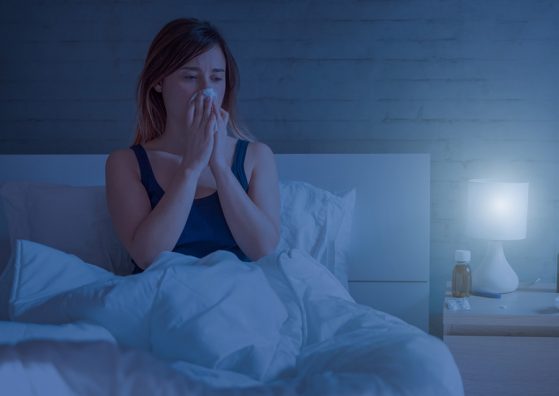
Hypoglycaemia
Hypoglycaemia (acutely low blood sugar) is wildly thought to be a problem for people with M.E, however there is little medical research into this issue. Dr Charles Shepherd suggests what is happening is that “people with ME, just like women with premenstrual syndrome, become more sensitive to lower levels of blood sugar and this is why they develop hypoglycaemic symptoms” (Shepherd, 1999, P.66).
Eliminating sugars from your diet may help alleviate some of the symptoms and a consultation with a dietitian could be helpful.
If this problem develops it may be worth being referred to a diabetic specialist to rule out other causes. Note: The title “dietitian” is protected by law. This means you’re not allowed to call yourself a dietitian unless you’re properly qualified and registered with the HCPC. The title of nutritionists isn’t protected by law, meaning that anyone can advertise their services as a nutritionist.
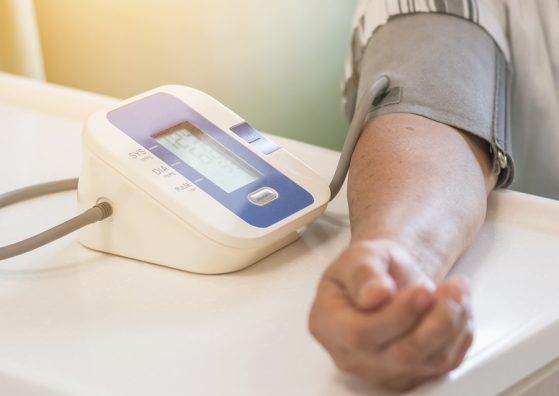
Depression
Depression can play a major role in your well-being, accordingly it is of paramount importance that you talk to your doctor about how you are managing with your M.E and whether or not you think that some medical intervention to help your mood would be beneficial. People with severe M.E are much more likely to be depressed than those with a milder case (Pheby, P.54).
There is a danger for people with M.E not recognising the signs of depression due to the overlap of some of the symptoms e.g. fatigue, memory and concentration problems and sleep disturbances.
Symptoms of depression
1. Feelings of guilt, worthlessness, and helplessness, pessimism and hopelessness – While people with M.E may sometimes doubt that their health will improve this is distinct from A bleak outlook—nothing will ever get better and there’s nothing you can do to improve your situation.
2. Loss of interest in things once pleasurable – This is in contrast to people with M.E who tend to be frustrated by their inability to do the things they use to be well enough to do e.g. work, attend family engagements etc.
3. Overeating, or appetite loss
4. Persistent sad, anxious, or “empty” feelings
5. Suicidal thoughts– always take such thoughts seriously even if it is an isolated case

There are a range of medical treatments available if you are depressed to help you feel like yourself again and you should always talk to your doctor before trying other “self-help” alternatives such as:
- Distracting your mind even temporarily with a hobby, doing something you enjoy can go a long way
- Spending time with friends and family or joining a support group can be greatly beneficial to reduce the feelings of isolation
- Always have something to look forward to – while for most this could be a holiday, for people affected by M.E this may not be possible but looking forward to something small like a visit with a friend or a drive to the beach can do wonders
Headaches
Headaches can be a major problem for 51% of people with M.E (MEA) to the point where they find it difficult to carry out even simple tasks. While there currently is no consensus on what causes headaches in people with M.E, there is some evidence to point to a link between M.E and migraine-type headaches “suggesting that mechanisms of migraine pathogenesis such as central sensitization may contribute to CFS pathophysiology” (Ravindran, 2011). However, as always it should not automatically be assumed that the reasons for such headaches are M.E and it is important to discuss all symptoms with your doctor. Sitting in a dark & quiet room with an ice pack can be very helpful in relieving the pain as can be taking an over-the-counter (OTC) painkiller. However, at least one review by the British Medical journal concluded that some analgesics when taken frequently may worsen headaches (Olesen J, 1995) so, as always discuss any OTC solutions with a trained medical professional.
Migraine strips can be beneficial, as can a “4head Sticks” that are specially designed to apply pain relief directly to the forehead, they can be especially helpful for tension headaches, as can a light massage of the should and neck. Your GP can refer you to a migraine clinic if necessary.
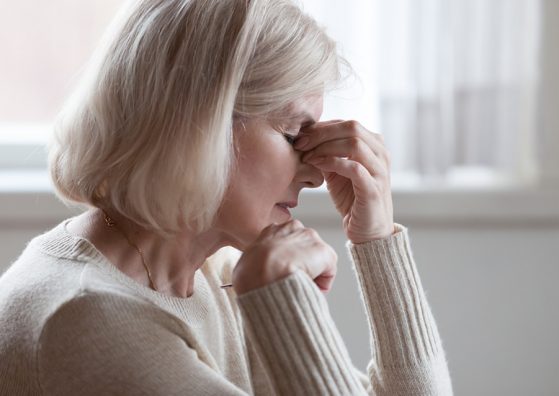
You may also consider whether there are any triggers for your headaches e.g. foods, caffeine, smoking, stress & poor sleep can all be contributing factors.
Eyes and Ears
There are a number of problems that may affect eyes and ears that can be very distressing and painful.
Tinnitus is a common enough problem associated with M.E unfortunately, unless there is a build-up of ear wax or an ear infection there are few medical solutions and many people live with it. It is not advised that you sit in a completely quiet room when you are suffering, instead play some soft music to distract yourself from the discomforted.
Hyperacusis is the name for intolerance to everyday sounds, that causes significant distress and affects a person’s day-to-day activities. This intolerance can present itself in various ways e.g. feeling uncomfortable, angry, tense or anxious as well as experiencing pain. The treatment options available via the NHS are various forms of talking therapies, and your GP should be consulted about all your symptoms.
Dry eyes – talk to your doctor or local pharmacy as simple eye drops might be effective. However, your doctor may also wish to consider Sjogren’s syndrome which can have M.E-like symptoms.
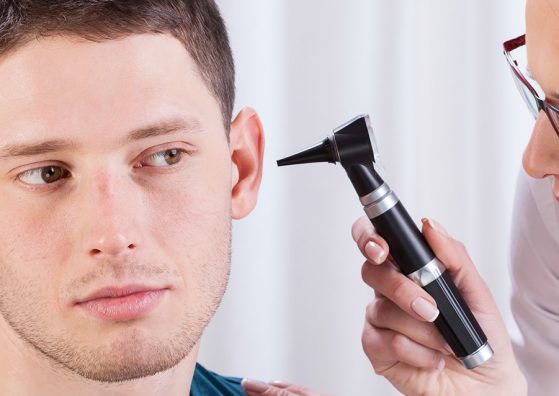
Photophobia (the dislike of bright lights) is common for many with M.E and is something that has to be managed by avoiding bright lights or wearing sunglasses (even indoors). Your optician may also be able to help and provide advice on the best ways to reduce the discomfort caused
Olesen J. “Analgesic headache” British medical journal 1995, 310 479-480
Pheby, Derek & Saffron, L. (2009). “Risk factors for severe ME/CFS”. Biology and Medicine. 1. 50-74.
Ravindran, MK, Zheng Y, Timbol C, Merck SJ, Baraniuk JN “Migraine headaches in chronic fatigue syndrome (CFS): comparison of two prospective cross-sectional studies” (2011) in US National Library of Medicine National Institutes of Health
Shepherd, C. in “Living With M.E the chronic/post-viral fatigue syndrome” (1999) Vermilion, Ebury Press, Random House, 20 Vauxhall Bridge Road, London SW1V 2SA
Spence. V, Stewart. J (2004) University of Dundee UK and New York Medical College, US
Wong, R., et al, “Skeletal muscle metabolism in chronic fatigue syndrome” 1992, 102, 1716-22
